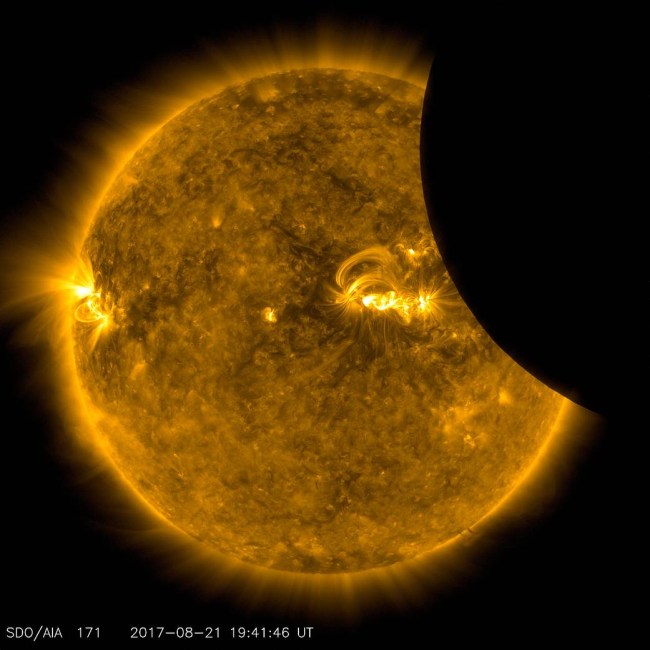Nia Payne knew the sun’s rays were especially dangerous during August’s eclipse so she purchased a pair of eclipse glasses. Sadly, her glasses were defective and when she looked into the sky at the solar phenomenon the powerful rays burned a crescent-shaped wound into her retina. Months after viewing the solar eclipse outside her boyfriend’s office in Staten Island, the woman still suffers from impaired vision and what is called “solar retinopathy.”
“The glasses seemed normal and I looked at the sky. I looked like everyone else,” Payne said. The 26-year-old woman said that after looking at the eclipse for less than a minute with her imitation eclipse glasses, she knew something was very wrong. “I knew immediately that something was completely wrong,” Payne said. Approximately six hours later Nia noticed a black spot had formed in the middle of her left eye. The next morning, she couldn’t see anything in the center of her left eye. “It looks like an invisible spot,” Nia said.
When Nia Payne gazed at the August solar eclipse with faulty eclipse glasses, she never imagined she'd permanently damage her left eye. https://t.co/CIog1MyNhq
— NBC Nightly News with Lester Holt (@NBCNightlyNews) December 9, 2017
She went to her local hospital the next day, but staff sent her home without examining her retina. Nia’s left eye suffered cellular damage and it is crescent-shaped like the eclipse that altered her eyesight. Payne went to the New York Eye and Ear Infirmary of Mount Sinai, where doctors diagnosed her with solar retinopathy, which means that the eye suffered damage to the retina caused by solar radiation, a common problem from solar eclipses. “The suns rays … damage the layers that actually uptake the light to the brain,” said Dr. Avnish Deobhakta, a retina surgeon at the New York Eye and Ear Infirmary of Mount Sinai, and author of a recent case study about Payne in JAMA Ophthalmology. “It’s almost like (the blind spot) is branded in that retinal area.”
WebMD: JAMA Ophthalmology reports one woman damaged her eye from looking at this summer's eclipse for what she said was just a few seconds. What to know: https://t.co/RtcJkPxD4w pic.twitter.com/kDWejIii2g https://t.co/p969NasthL
— Freddy Pizart (@fpizart) December 8, 2017
Now the partial solar eclipse is seemingly burned into her retina permanently. “We were able to see the crescent in New York City and that crescent was the exact pattern of damage,” Deobhakta said. The only possible bright spot for this tragic situation is that eye doctors now have the technology to see what damage the solar eclipse causes to the retina, allowing them to understand the condition, which could eventually help develop potential treatments.
